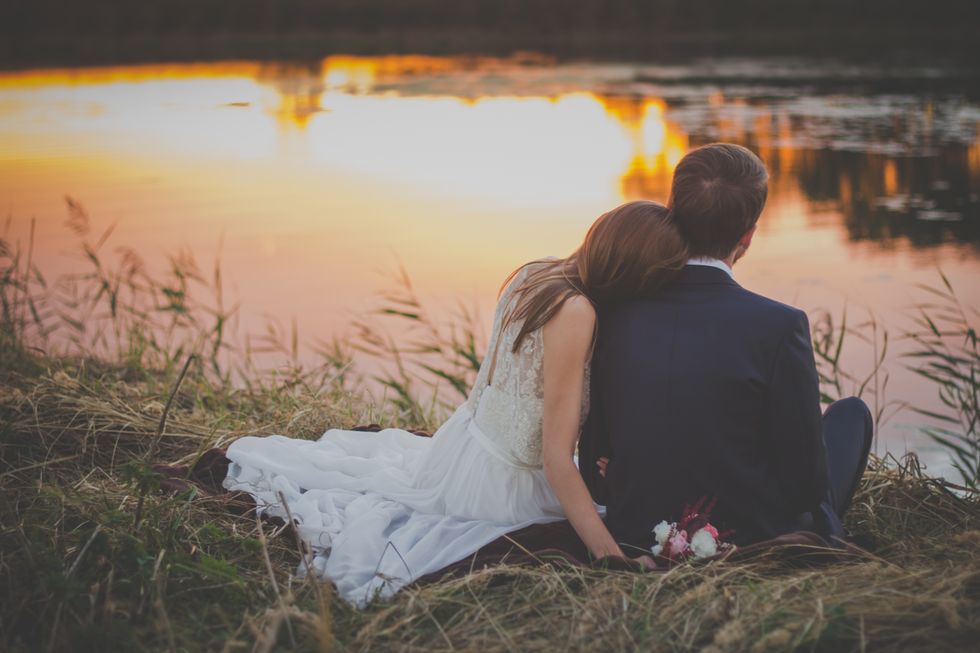Sex.
It's a word flung out nonchalantly by our culture. Excessively referenced, mentioned or explicitly depicted in books, movies, TV shows, magazines, random articles on the Internet. A careless act performed with significant others, coworkers, spouses, random strangers. An act that has almost lost meaning in the whirlwind of casual engagement with which it has been surrounded, associated; an act that is inconsequential save for the avoidable danger of pregnancy or STDs.
Waiting until marriage—it's cliche, old-fashioned, a poorly used plot device in romance novels to generate suspense or to emphasize the female character's supposedly superior character or value. It's the stuff of legends—frigid, prudish virgins living over-sheltered lives and cringing at the exposure of a woman's ankle. In their minds, sex is the epitome of all evils, the personification of sin itself, an act eternally interwoven with the likes of Satan himself. To commit such a horrendous act is to be eternally, irreversibly scarred, to make oneself unforgivable, irredeemable. Crimes such as rape are only horrible in that they render the victim utterly worthless in their execution.
In this day and age, it must be unthinkable for any reasonable person to be so prudish as to save sex for their wedding night. Right?
I have grown up Roman Catholic. Raised by a convert and a cradle Catholic, religion has been a core part of my life since I was five years old. As I grew older, the list of sins extended to include sexual contact outside of the confines of marriage. Reading over my examination of conscience, I would see things such as: Have you consented to impure glances? Lustful touches, or passionate kisses? Have you engaged in premarital sex or sexual contact, with yourself or with other people, or watched or read pornographic material? I heard adults talk about the vile nature of sex, how it scarred physically and emotionally, how my husband would see my value in my virginity. I heard adults attribute rape and sexual assault to the victim's lack of sexual boundaries, or the victim's emotional instability. I saw the way that sex was portrayed and it confused me: Sex, the fundamental act upon which our species depends, was an evil, ungodly act?
I pushed the boundaries, explore, if you will. I never went farther than the rules said that I should—but I went farther than I knew I really should. I read books about the place of sex within marriage. And for the life of me I could not understand why the Church would impose such a strict boundary upon its members, why sex—a pleasurable act of bonding and reproduction—could be evil.
And then I went on a retreat. A retreat that suddenly explained everything.
On this retreat, three women stood before a group of young teenage girls and expressed their encounters with sex and sexual contact. How scarring it had been, years down the line, to open their bodies to strangers, even to loved ones. How beautiful it is to make a commitment to waiting. How chastity is not about virginity, but purity, intention, about loving and respecting yourself, about loving and respecting the people around you. They opened up about their own sexual desires, their own misunderstandings, their own negative experiences with the portrayal of sex. Their own struggles with sexual desire, pornography, masturbation. That sex is not in any way evil, but wholly good and perfect in the eyes of God. A reflection of God's love, contained within the marriage embrace.
I looked back at my own shortcomings, my own pushing at the boundaries. It didn't make me happy, or fulfilled, even though at the time it was pleasurable. It didn't make me feel closer to God; on the contrary, it drew me farther from Him. It didn't make me feel loved, or valued, or worthwhile; it made me feel like an object, and it made me feel like I was using and being used.
After that retreat, I stopped repeating the line that my religion classes had fed me and took responsibility for what I believed. I looked at the brokenness of my previous understanding of sex, at the brokenness of how the Christian Church so often portrays sex. (For a more developed criticism on that particular point, see here.) Sex is not evil, and premarital sex does not in any way leave an eternal scar on someone. Chastity—saving yourself—is not about virginity; it's not about past mistakes. It's a continued decision to stand up after falling, to commit to a commitment that half the time, you don't want to follow. It's a realization that chastity doesn't end at marriage; on the contrary, premarital chastity is only where it begins. It's not cold prudery, not an old-fashioned sexist notion; it's flaming hot passion, contained in the wise confines of the fire pit of marriage. It's a virtue both men and women are called to equally, without regard to stereotypes about their sexuality. It's a beautiful, beautiful virtue that draws you so much closer to God, to your significant other—because there is something beautiful in looking someone in the eye and saying, "We are waiting because we love each other. Because I view you as a person, not as a sexual object for my own gratification." It's beautiful whether that person has a mountain of sexual baggage or none at all. Because real chastity, waiting for marriage, is not about the holding back, the saying no, the rejection. It's about the expression of real love, saying yes to God, the acceptance of truth and charity.
And that, in a nutshell, is why I am waiting for marriage.






















